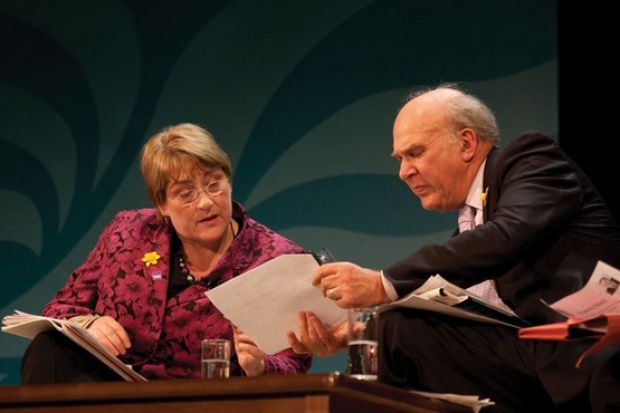Source: Alamy
Points of review: Lady Brinton noted Lib Dem support for ‘graduate contribution’
Liberal Democrat members could be set for another collision with the party’s leadership over higher education after signalling support for a graduate tax as official policy at the next general election.
Updating the party’s approach to university funding after the trauma of its broken promise to oppose higher fees is among the aims of the Lib Dems’ post-16 education policy review, which held a consultation session on 8 March at the party’s spring conference in Brighton.
The section of the consultation document relating to higher education funding puts forward three options: the status quo of £9,000 maximum fees; a “purer graduate contribution”; and a reduction in student numbers to lower costs to the state.
Baroness Brinton of Kenardington, chair of the review, said: “It was noticeable that members of the party who spoke at the conference felt they wanted to see a graduate contribution.” But she stressed that it was too early to say what funding proposal would emerge from the review, noting that the consultation period does not close until 8 April.
If Lib Dem members do manage to lead the party to adopt a graduate tax policy, it could set up a confrontation with the leadership.
The Independent reported earlier this year that senior Lib Dem figures want the party to promise to lower fees to £6,000 a year.
This could result in a repeat of the Lib Dem split ahead of the 2010 general election, when members’ wishes to phase out fees - still the party’s official policy - became a key election pledge despite the reservations of some senior figures.
This summer, the Lib Dem Federal Policy Committee will publish a motion to be debated and voted on by delegates at the party’s autumn conference, with the result determining party policy.
The Lib Dem general election manifesto will be written by the committee, “based on the agreed policies of the party but updating them where necessary”, according to the party’s website.
The consultation document says of the graduate tax option: “The present system is a hybrid, part loan repayment, part graduate contribution. Should we move to a purer graduate contribution to cover the cost of fees, and continue with maintenance loans?”
Lady Brinton, a former bursar at two University of Cambridge colleges, said the option to reduce costs and student numbers was included in the consultation to spell out the implications of “going back to a fully funded undergraduate student finance system”.
But she said of that option: “I don’t see any support for that at all.”




